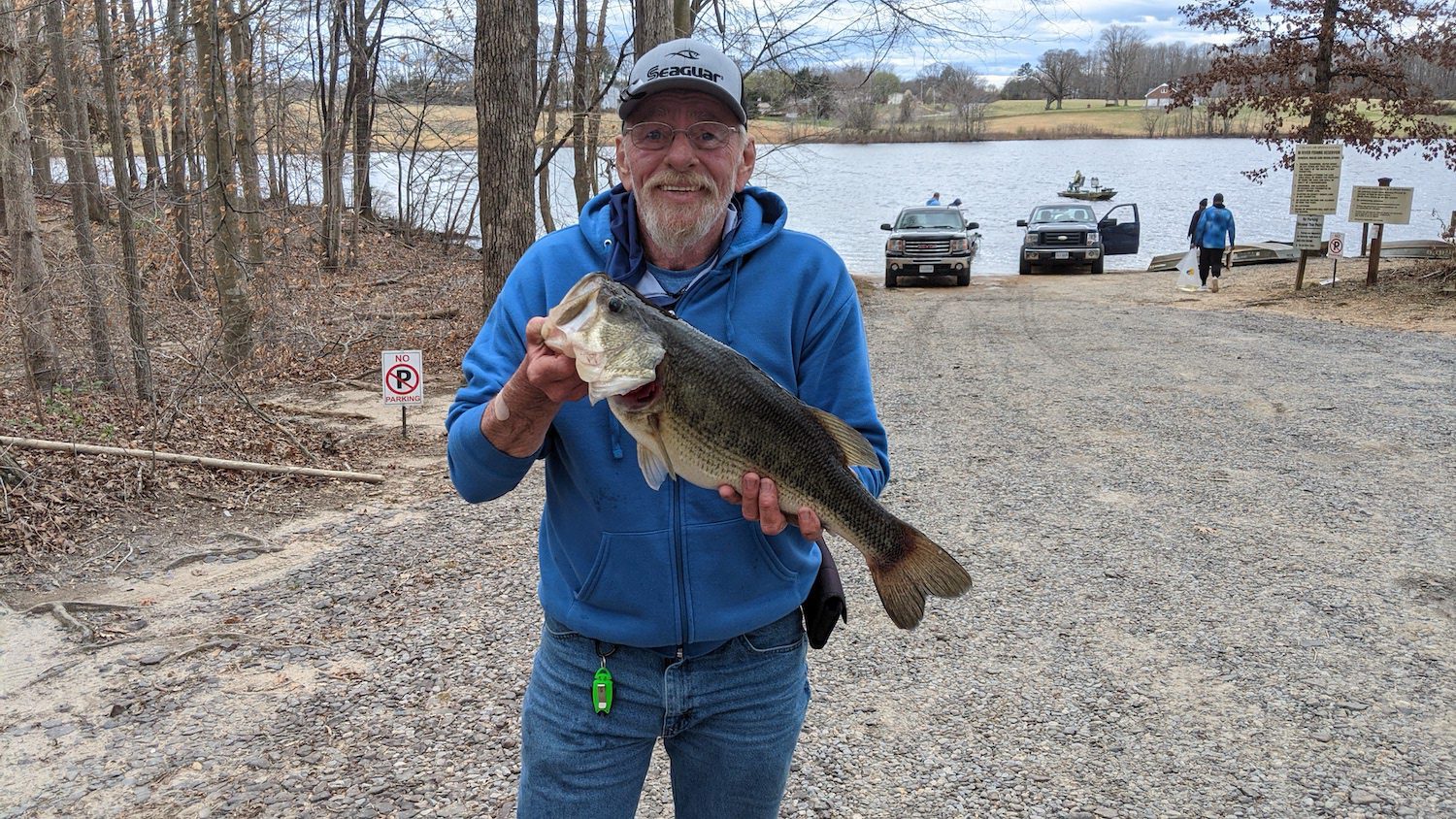Finding Them Hawgs:
My April Fishing Baits
by Bruce Callis Jr
[print_link]
April can be a difficult time for bass fishing. So much can come to play. The largemouth bass can be in pre-spawn, spawn, and even some post spawn, depending on the water you are fishing. Where do you start and what do you throw? The questions that everyone wants the answers to.
The first thing I like to do is look at my maps. I like the old school paper maps because I can mark on them and put notes. But with Google Maps and Google Earth Pro, you have so many options. An in addition is the mapping on our fish finders. They can vary and not all of us have those top end models that offer shading on the shallows, or along a certain depth. But Google Earth Pro is an awesome tool to add to your research. You can actually look back at a lake or pond and see, if available, when it was down. You can find things that can offer some extra hiding places for bass. No matter what, it offers us another tool in our hunt for big bass.
But where do we start this month and what are we looking for. First we need to find where the bass are going to spawn. While we all think the back of the pockets and coves, especially those with shallow flats, we need to remember that not all the bass are going to move back there. Some will stay out on the smaller flats off the main lake. For the most part, these may be the biggest bass. They like to stay closer to the deeper water and it’s safety. But in general, the flats are where the majority of the bass will be moving to. And it is where we will be looking first.
As we enter the late stages of prespawn, there are a variety of baits we can use. Depending on the water clarity, we may not always see the beds being made by the young males, so what do we throw? For me, if I am looking shallow, I will use a crankbait to cover water and to entice a reaction bite. The SPRO Fat John 60 is my first choice. With it’s running depth of 1-3 feet and it’s hunting action, it makes a perfect choice. One of my favorite choices is the Spring Craw color or the Matte Shad followed by the Chartreuse Black Back depending on the water clarity.

If I need to cover a little deeper, I either throw the Little John 50 or the Hunter 65 SB. The Hunter dives to 3-5 feet and has a great hunting action. The Little John 50 also dives to 3-5 feet and has a tighter wobble to it. Both are great choices, but offer a little something different also.
While the crankbait can cover just about everything, there are going to be certain conditions that it just isn’t the best option. For instance, around laydowns. You can work the crankbait around them, but sometimes there may be something you need to throw behind, like a log. For these, I like to throw a Power Team Lures Craw D’oeuvre or a Mauler with a light weight, like a 3/16 WOO Tungeston Never Chip worm weight. It allows a slower fall and a better feel of the structure. The Craw D’oeuvre is a smaller profile at 3.5 inches with it’s smaller claws and and has less action to it, while the Mauler has a larger profile at 3.8 inches and it’s larger claws and offers more action.
One bait I will always have tied on is the lipless crankbait by SPRO, an Aruku Shad. I can work it across the flats and along the drop off into deeper water. It is very versatile and has proven to be a big bass catcher as well as a numbers catcher. Chrome with Blue Back is my prime choice, but I will switch it up with a Blue Gill or Purple Rain as conditions change.
A suspending jerkbait will always be tied on as well, and I like the SPRO McStick 100 for this. It also has a running depth of 5-7 feet, but with an upgrade to 12 pound test fluorocarbon, and using upward twitches I can work it higher in the water column.The McStick 95 is slightly smaller and suspends in 3-5 feet of water and make a great choice also.

I will always keep a spinnerbait and a chatterbait tied on, as these are also great baits and can play a huge roll in getting my limit. And I will also keep a jig tied on and ready. We all know they work and are know for big bass.
April is the time to catch those big females that are moving up to spawn and we need to be ready for them on every cast. Knowing how they are moving and to where offers us the best chance to find them. Having the right baits tied on to cover as many situations as possible, is a real key. Are these everything you will need? Only the bass can tell you. Are these all I will have rigged? By no means. You got to have some finesse ready too. Now go out there and find that new personal best!

